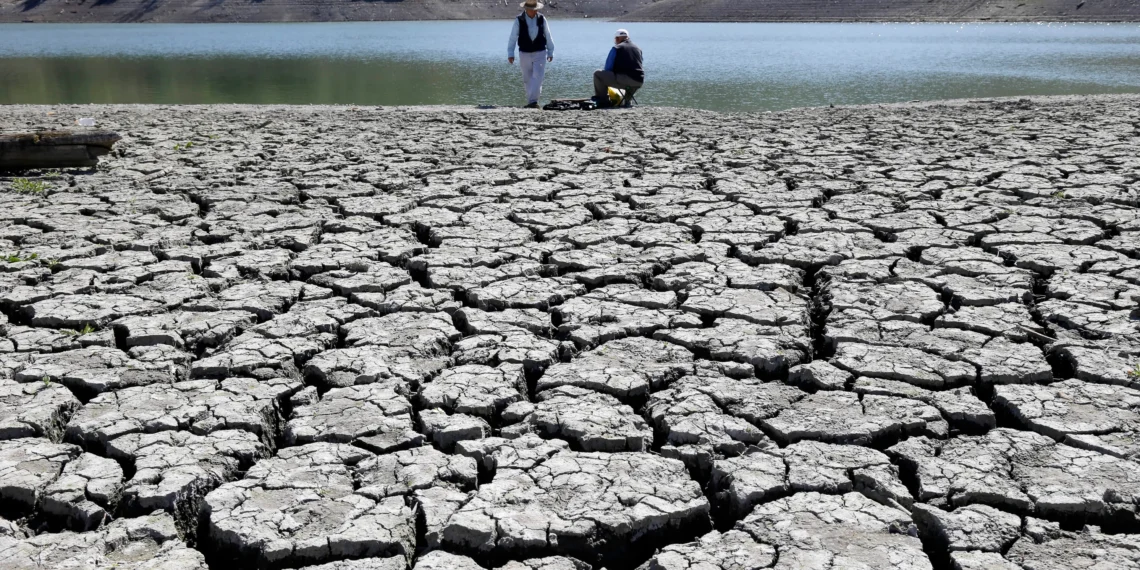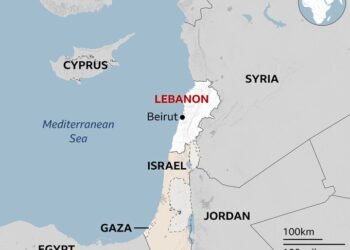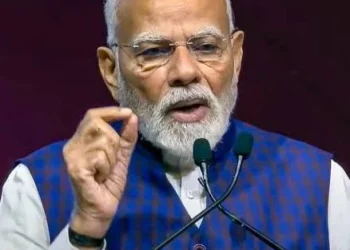By exiting the Paris Climate Accord, the U.S. has found itself clubbed with countries like Libya, Iran, and Yemen—nations that disregard the urgency of the climate crisis. This unprecedented retreat risks isolating the U.S. on the world stage and could have long-lasting repercussions for future climate action.
BY PC Bureau
What Do the USA, Libya, Iran, and Yemen Have in Common? A Shared Stance on Ignoring Climate Crisis
What could possibly link the world’s most powerful democracy with Libya, Iran, and Yemen—nations often associated with political instability and international isolation? On the surface, absolutely nothing. Yet, a startling commonality now unites them: their refusal to fully embrace the global fight against climate change.
In a controversial move, President Donald Trump, on his first day in office during his second term, signed an executive order to withdraw the United States from the Paris Climate Accord. With this decision, the U.S. joins Libya, Iran, and Yemen as the only countries not committed to this landmark agreement aimed at curbing global warming.
Trump again withdraws the United States from the Paris Climate Agreement, joining an exclusive club with Iran, Libya, and Yemen.
Withdrawal formally takes effect one year after receipt by the UN. pic.twitter.com/nw6g1wR9cN
— Dr. Robert Rohde (@RARohde) January 21, 2025
A World on Fire
As the world grapples with unprecedented climate challenges—from raging wildfires and catastrophic floods to rising sea levels—one might assume that global leaders would rally to address these crises. Yet, the USA’s exit from the Paris Accord under Trump signals a stark departure from collective responsibility.
Libya, plagued by years of civil war, lacks the political stability to prioritize environmental policies. Iran, under severe economic sanctions, has largely sidelined climate commitments in favor of short-term economic survival. Yemen, devastated by conflict and humanitarian crises, remains unable to engage in global climate diplomacy. And now, the United States—despite its vast resources and technological advancements—chooses to align itself with these nations in what many see as a reckless abdication of responsibility.
Why the U.S. Exit Matters
Unlike Libya, Iran, and Yemen, the United States wields enormous global influence, both economically and politically. It is one of the largest carbon emitters in history and possesses the means to drive significant change in renewable energy and sustainable practices. By stepping back from the Paris Accord, the U.S. risks not only exacerbating the climate crisis but also eroding its global leadership.
Trump defends the move as a necessary step to protect American jobs and sovereignty, arguing that the Accord imposes unfair
Forgotten Faces in the Climate Crisis Debate
The people who pick our crops, clean our homes, and build our cities are often the first to bear the brunt of climate change. These marginalized communities—farm laborers, domestic workers, and construction crews—are essential to the fabric of our society, yet they remain invisible in the larger debate on global warming. The irony is striking: the very hands that feed and support us are left to fend for themselves against floods, heatwaves, and droughts, consequences of a climate crisis they did not create but endure the most.
As the United States, under President Donald Trump, officially exits the Paris Climate Accord in his second-term executive order, the ripple effects of this decision extend far beyond political headlines. By choosing to withdraw from this global pact, the U.S. risks leaving its most vulnerable communities exposed to climate devastation.
The Injustice of Climate Vulnerability
Farmworkers laboring under scorching heatwaves, domestic workers in flood-prone regions, and construction crews in cities grappling with rising sea levels face unique challenges. These groups often work in unregulated or underregulated sectors, leaving them without proper protections against extreme weather events. As temperatures rise and natural disasters become more frequent, their living and working conditions deteriorate further.
🇺🇸 US President Donald #Trump on Monday announced the #UnitedStates‘ withdrawal from the #Paris #climate accord for a second time, a defiant rejection of global efforts to combat planetary warming as catastrophic weather events intensify worldwide.
More from @Morgan_Ayre 👇 pic.twitter.com/p0kEPuP4nE
— FRANCE 24 English (@France24_en) January 21, 2025
Yet, policies addressing climate change rarely center the needs of these communities. Instead, discussions often focus on macroeconomic impacts, ignoring the micro-level realities of those most at risk.
ALSO READ: America First, Climate Second: What Trump’s Paris Withdrawal Means for the World
Trump’s Exit: Who Pays the Price?
In his justification for withdrawing from the Paris Accord, Trump framed the decision as one that would save American jobs and protect industries. But whose jobs is he really protecting? The rollback of climate commitments disproportionately harms the very people Trump claims to champion.
For example, Latino and immigrant workers—who constitute a significant portion of the agricultural and construction workforce—are among the most affected by extreme heat and poor air quality. Without climate mitigation efforts, their exposure to these hazards will only increase, leading to health crises, reduced productivity, and ultimately, economic insecurity.
Does this need a reassessment given Trump has just nixed US commitments to the Paris Climate Agreement? "Current policies" very likely to reverse as oligarchs and autocrats rush to double down on fossil fuels forever! https://t.co/iRp7aiLJWu
— Christopher Wright (@ChristopherWr11) January 21, 2025
Global Implications, Local Consequences
The United States’ withdrawal from the Paris Climate Accord sends a troubling signal to the international community. As one of the largest historical carbon emitters, the U.S. has a moral obligation to lead the fight against global warming. Its absence emboldens other nations to prioritize short-term gains over long-term sustainability, undermining collective efforts to limit global temperature rise.
Domestically, the withdrawal signifies a step back in addressing environmental justice. Communities of color and low-income workers, already disproportionately affected by climate change, will face even greater challenges without federal action to curb emissions and invest in resilience.
A Call to Action
The people who pick our crops and clean our homes cannot afford to wait for political leaders to acknowledge their plight. Climate change is here, and its effects are deeply personal for those on the frontlines. If the U.S. refuses to lead, then it falls to state governments, local communities, and individuals to demand change and protect those most vulnerable.
For a country built on the labor of its most overlooked citizens, failing to address their needs in the climate crisis is not just shortsighted—it’s a moral failure.














